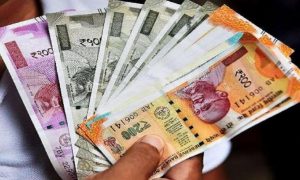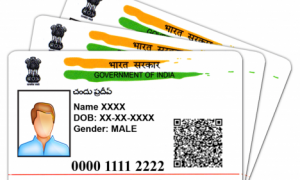The Reserve Bank of India (RBI) has announced that the Retail Digital Rupee, the first pilot project for the retail digital currency will be launched on December 1.
The transactions of retail digital rupee will be carried out through a digital wallet on mobile phones and other devices. Eight banks have been identified for phase-wise participation in this trial. Digital currency transactions can only be made through the digital wallets provided by banks taking part in the RBI’s digital rupee scheme.
Digital version of currency notes:
The digital retail rupee that represents legal tender will be in the form of a digital token. The central bank will issue the digital currency in the same denominations that coins and paper currency are issued.
Read More: Alibaba to sell shares worth $200 mn in Zomato: Report
How and where to use digital currency?
You require a UPI id or a QR to use UPI. Similar to physical cash, you must be a part of the digital currency ecosystem, such as a digital rupee wallet, in order to keep or transact in digital currency. You require a digital rupee QR code in order to transfer money to, let’s say, a merchant.
Earlier it was told by the RBI that CBDC will be a medium of payment which will be a legal tender for all businesses, government, citizens and others. In CBDC, core banking will only debit your account once for currency purchases; however, all subsequent transactions will be transferred from one wallet to another. More importantly, it is safer and much more practical than cash.
After the introduction of digital currency, the need to carry cash will not reduce or there will be no need to keep it.
What are the benefits of E-rupee/digital currency?
- Beneficial for boosting the digital economy.
- It will have the ability to process payments like a mobile wallet.
- Digital rupees can be quickly converted into bank money and cash.
- The expense of sending money overseas will go down.
- Even without an internet connection, E-Rupee will function.
- E-rupee will have an equivalent value to current money.
Read More: SBI vs HDFC Bank vs PNB vs ICICI Bank: Check out their locker charges
What is the strategy for launching a digital rupee?
Customers from specific trial cities will soon receive invitations from their banks.
Will the client receive any interest in the digital rupee?
There won’t be any interest earned on the balance of a digital wallet, just like there is none earned on cash carried in our pockets. Consider your e-wallet as being the place where your cash would normally be.
How will the digital rupee benefit the financial system?
Digital currency promotes financial inclusion and reduces the cost of creating money. Over time, with the help of policy unlocks, CBDC can be used without an underlying bank account, enabling users to hold and transact digital money exactly like they would with physical cash.
What the client would encounter with the Digital Rupee during the pilot phase is a very modest slice of the full strategic block that the RBI has conceptualised. With policy reforms, further developments in cross-border transactions, financial inclusion, and other areas may also occur.





































